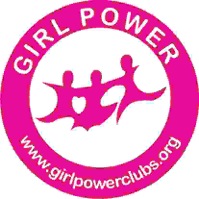Approximately half of the global female population are in reproductive
phase and have monthly menstruation. Research shows that in Kenya, only 12% of girls
would be comfortable receiving information about menstruation from their
mother. On 28th May 2017, Girl
Power Clubs Africa joined organizations around the world in celebrating the
annual global menstrual hygiene day. The event was celebrated in Nairobi at Nazarene
Primary School with St. Catherine’s and Nazarene Girl Power Clubs. The day was
celebrated under the theme ‘Education about menstruation changes everything’ and
was facilitated by Sadili staff Joy Akim, Philipa Mtamira, Aurelia Mito and
Trizah Mboya.
Discussions
during this highly interactive and informative session revolved
around: understanding what menstruation is, what menstrual hygiene entails,
what a girl needs during her periods, myths and facts about menstruation as
well as overcoming taboos surrounding periods. The girls were also given a
chance to ask questions and to talk about their personal experiences with
menstruation.
“The
one lesson I am taking home with me is that menstruation is beautiful, and is
not something to be ashamed of,” remarked Roslyn, a pupil at Nazarene Primary
school. “I am yet to have my first period but I will be very well prepared for
it when it comes.”
Girl Power Clubs Africa is a leadership program focused on providing
girls with a chance to learn life skills and learn to make decisions that
affect their lives and their communities positively. It strongly believes
that that every woman and girl has a right
to know the importance of hygiene management during menstruation. One of its
focus areas is on providing factual guidance and positive information around
menstruation, breaking taboos and traditional practices.
Every year
on May 28, Menstrual Hygiene Day (MHD) is celebrated worldwide to raise
awareness about the importance of menstrual hygiene management and break taboos
for women and adolescent girls.
It was initiated by the German-based NGO WASH United in
2014.



